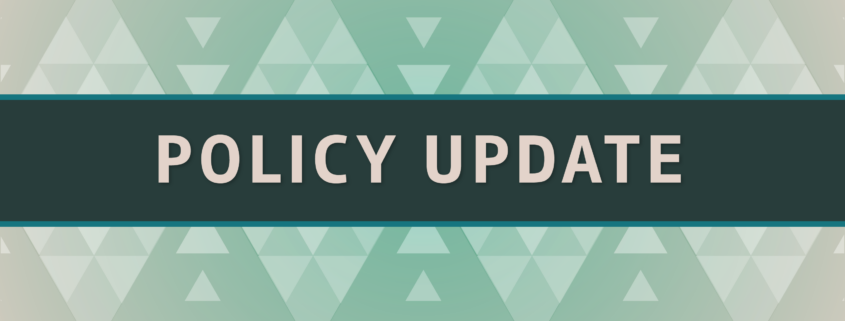Tribal Leaders Recommend Increased Urban Indian Health Funding in Fiscal Year 2027 Area Reports
On January 22-23, 2025, the Indian Health Service (IHS) held their Area Report Presentations Webinar for Fiscal Year (FY) 2027 where Tribal leaders from all 12 IHS Areas and leaders from Native organizations, including the National Council of Urban Indian Health (NCUIH), presented on their budget requests. Tribal leaders spoke about the need to increase urban Indian health funding. For example, Oneida Division Director, Debra Danforth, said that Urban Indian Organizations (UIOs) need critical funding increases to serve large American Indian and Alaska Native populations in urban settings in the Bemidji Area.
Some common themes among Area reports were the need for funding for mental health, purchased/referred care, dental services, and alcohol/substance abuse.
NCUIH always supports the National Tribal Budget Formulation Workgroup’s recommendation for the IHS budget and is grateful for Tribal leaders’ support for increased funding in the Urban Health line item.
Area Report Highlights
Several Areas featured the work of UIOs in their presentations and advocated for increased allocation of funding and resources for urban Indian health.
The Bemidji Area stressed the need for an increase in funding to support authorized programs for UIOs. They recommended an increase of $303 million for the Urban Health line item above the fiscal year (FY) 2023 enacted of $90.4 million base.
The Billings Area listed Urban Health as priority 9 and recommended an increase of $2.6 billion increase above the FY 2023 enacted base.
The California Area recommended a $1.6 billion increase above the FY 2023 enacted base and kept Urban Health at priority 11.
The Navajo Area recommended a $3 billion increase above the FY 2023 enacted base.
The Oklahoma City Area kept Urban Health at priority 4 and included 100% Federal Medical Assistance Percentages (FMAP) at UIOs as hot issue 12. They recommended a $559 million increase above the FY 2023 enacted base.
The Phoenix Area kept Urban Health at priority 6 and recommended a $874 million increase above the FY 23 enacted base.
The Portland Area kept Urban Health at priority 5 and recommended a $1.1 billion increase above the FY 23 enacted base.
The Tucson Area included 100% FMAP for Medicaid services provided at UIOs as hot topic 7 and recommended a $1.6 billion increase above the FY 23 enacted base.
NCUIH Presents Priorities at Areas Presentations Webinar
Alexandra Payan, NCUIH’s Interim Director of Federal Relations, presented the top priorities for urban Indian health for FY 2027 during the Area Report Webinar. NCUIH supports full funding for the IHS, Tribal, and UIOs (I/T/U) system. NCUIH endorses a budget in which IHS, Tribal Facilities, and UIOs are all fully funded to improve health outcomes for all Native people no matter where they live.
- Full funding for IHS and the Urban Indian line item
- This funding is necessary to address health priorities for Native in urban areas, including:
- Ensuring Urban Indian Health funding keeps pace with population growth.
- Providing funding for UIO facilities and infrastructure.
- Expanding service offerings to Native patients in urban areas.
- This funding is necessary to address health priorities for Native in urban areas, including:
- Establishing Permanent 100% FMAP for services provided to Medicaid beneficiaries at UIOs
- Recruitment and Retention of Workforce
- Special Diabetes Program for Indians (SDPI) reauthorization
- Increased funding and resources for Traditional Healing services, food and housing insecurity
Background on Area Budget Formulation
As part of the trust responsibility to provide health care to all American Indian and Alaska Native people, Tribal leaders present their funding needs each year to the Secretary of the U.S. Department of Health and Human Services and the Director of the Office of Management and Budget. The recommendations are formed through the Tribal Budget Formulation Workgroup and serve as a framework for the Administration in setting budget amounts for their annual requests to Congress. This process ensures the federal government has the resources to provide health care to all American Indian and Alaska Native people in fulfillment of the trust responsibility.
Next Steps
On February 11-12, 2024, IHS will host the FY 2027 National Tribal Budget Formulation Work Session. This is a 2-day annual meeting where the two Tribal representatives from each Area come together to review and consolidate all the Areas’ budget recommendations into a comprehensive set of national health priorities and budget recommendations. Work session activities include:
- Tribal Caucus occurs where the Tribal workgroup co-chairs are selected
- Tribal representatives from each Area give a brief Area report presentation to the group
- Discussion on determining priorities and budget recommendations
- Discussions are made by consensus from workgroup members. Only the two Tribal representatives that are part of the workgroup are allowed to partake in voting.
- The workgroup will meet with the IHS Director and other IHS leadership to discuss health priorities and budget recommendations.
- At least one tribal representative from each Area along with technical team members will coordinate to complete follow-up work on the budget recommendation and testimony that will be presented.




